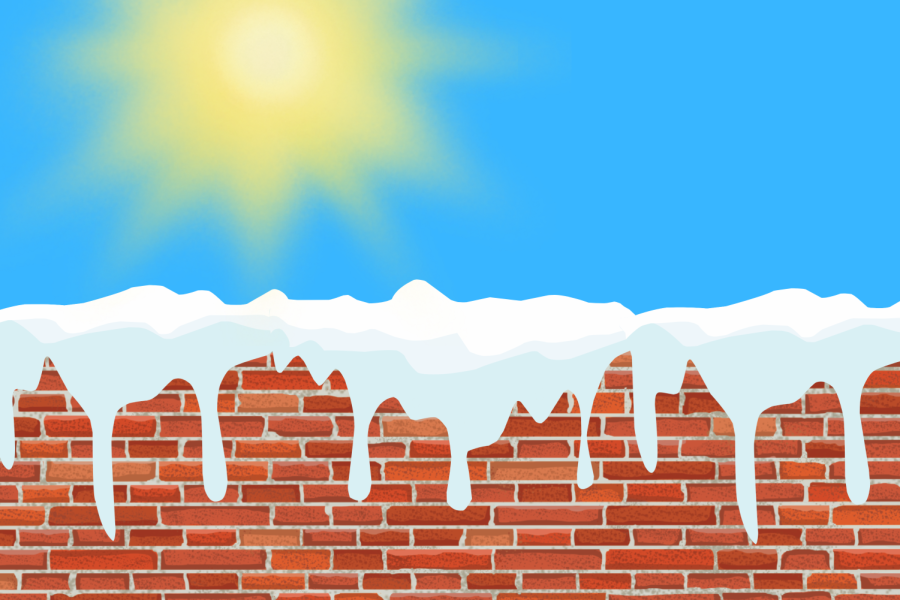NU professors and students react, discuss solutions to warming Evanston winters
Northwestern professors and students worry that historically warmer winter weather in Evanston represents the impact of global climate change.
February 9, 2023
Though some may enjoy the warmer weather, Northwestern professors and students worry last month’s increase in temperature — rising about 8.5 degrees Fahrenheit since 1981 on average — presents the impact of global climate change.
Biology Prof. Joseph Walsh has identified various mechanisms, such as rising carbon levels and minimum temperatures, that align Evanston’s shifting weather patterns with the changing climate.
According to Walsh, increasing carbon emissions in the atmosphere contribute to rising global temperatures. He said while carbon is a necessary part of the atmosphere, the current measure surpasses the safe amount of 300 parts per million.
“Unfortunately, now we are at 400 parts per million,” he said. “We need to stop putting (carbon) in the air and figure out how to deal with the extra heat we are trapping.”
Earth and planetary sciences Prof. Rosemary Bush identified the decreasing amount of ice in Lake Michigan as an indicator of local climate change. In 1977, 90% of the lake was covered in ice — in 2022, total coverage amounted to 13%.
“You can see massive amounts of variation (in weather patterns),” Bush said. “Next year, we (may) have a period where we have a lot of ice, but the general trend is less and less ice over the last decades.”
Bush said modern scientists look to the Paleocene-Eocene Thermal Maximum as a historical period that could predict the modern effects of global warming.
Occurring about 55 to 56 million years ago, the PTM was characterized by rapid environmental warming in which global temperatures rose by 5 to 8 degrees Celsius.
“(The warming) was probably caused by a release of carbon … probably an amount of carbon that was in the range of what we have in fossil fuel reserves in the ground today,” Bush said. “So if we burn all the coal, all the oil — which we are on track to do — we will release roughly the same amount as what was naturally released into the atmosphere during the PTM.”
While the PTM is the best example of a rapid climate change, Bush said today’s warming is occurring at an unprecedented speed.
Walsh said he is disappointed with the U.S. government’s lack of reform regarding fossil fuels and energy use. He said improving battery and solar power production could limit stark environmental change.
“We need to shift what the bulk of energy use is,” Walsh said. “Through collecting energy from the sun and storing it, we will be less reliant on fossil fuels, which will help slow the effects of climate change.”
Fossil Free Northwestern, a student group that advocates for better environmental practices at NU, also supports the shift toward cleaner energy.
Weinberg senior and Fossil Free treasurer Jamie Gray said reducing the effects of climate change requires “a rethinking of social institutions.”
“If nothing else, it requires a mobilization of green technologies to move away from the entrenched fossil fuel structures,” Gray said. “On the immediate level, there is a lot that can be done to control carbon emissions, but on the long term level, it requires a re-evaluation of the way society works.”
Fossil Free accomplished its initial goal of having the University agree to divest in fossil fuels in 2022. The organization has since moved to ensure NU divests and has continued to push the University to take more environmentally-friendly steps.
Communication junior and Fossil Free member Jordan Muhammad said institutions need to increase their investment in sustainable solutions in addition to divesting from fossil fuels.
“Yes — it is great we are divesting, but we also need to be actively helping the (planet) because of how dire the situation is,” Muhammad said.
Email: [email protected]
Twitter: @SerenaBrownn0
Related Stories:
— Northwestern to follow new fossil fuel investment guidelines
— Green Initiative: As the global warming debate heats up, environmental activism sprouts at NU


